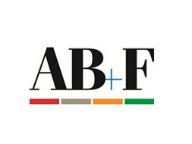Faculty News
—
Professor Arun Sundararajan on the impact of classifying Uber drivers as independent contractors vs. employees
—

Excerpt from Bloomberg -- "Classifying drivers as employees would result in higher prices, and fewer Uber drivers overall who must work longer hours, said Arun Sundararajan, a professor at New York University's Stern School of Business. The higher costs would be passed on to consumers, with reductions in drivers' income and Uber's cut of their fares, he said. The effect on Uber’s global revenue would likely be small, Sundararajan said. 'I think the real risk is that if they lose in California, other states will follow,' he said."
Faculty News
—

Excerpt from Bloomberg -- "Classifying drivers as employees would result in higher prices, and fewer Uber drivers overall who must work longer hours, said Arun Sundararajan, a professor at New York University's Stern School of Business. The higher costs would be passed on to consumers, with reductions in drivers' income and Uber's cut of their fares, he said. The effect on Uber’s global revenue would likely be small, Sundararajan said. 'I think the real risk is that if they lose in California, other states will follow,' he said."





















